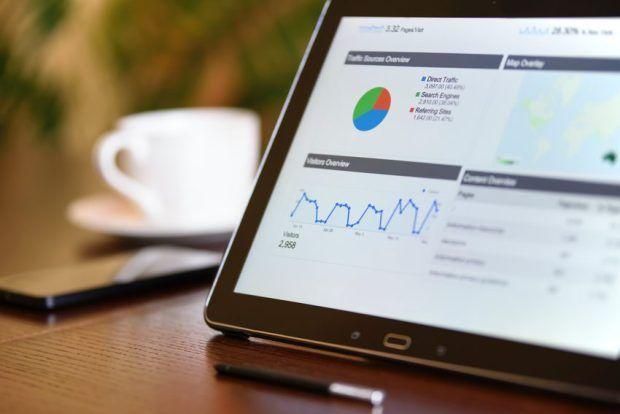In this article, we are listing the 5 best ERP software for small business enterprises. We’ve already handled “What is ERP?” but a quick rundown, Enterprise Risk Management (ERM) is a company-wide strategy to identify and prepare for risks, especially those related to the company’s finances, operations, and goals.
How do ERP software for small business enterprises (SMEs) help them?
ERP has been seen as a must-have for businesses for many years, but small companies may also profit from it. Small enterprises need to be faster and more agile than their competitors, which is good enough to use ERP software.
Small companies may find themselves in many situations where they must use ERP software to improve service delivery. These include when the firm: is relying on educated guesswork in sales predictions; is having difficulties monitoring orders and relies heavily on spreadsheets; has difficulties determining warehouse inventory status, and so on.

An ERP system has a single centralized database that allows all departments to access correct information about the firm. It also automates fundamental business procedures, allowing small company owners to produce reports quickly, comply with regulations, and manage risk.
There are ERP systems tailored to smaller firms and midsize corporations. You may keep track of all the data in the system, which aids with CRM, purchasing, accounting, and supply chain management in the company. The firm may increase visibility and cash flow with a single platform while lowering inventory expenses. Rather than spending time on administrative duties, workers have more time to focus on business development and sales.
If you would like to read more about this topic, you can check our ERP vs CRM comparison article.
However, each small company requires an ERP system tailored to its particular business challenges, customer base, and competitive position. As a result, organizations must invest in the best solution possible – suited to their requirements and manages well within their sector.
There are several things to consider to accomplish this, including simplicity of use, customization, host platform (on-premises or cloud), support service, security techniques, and upgrade frequency.
Advantages of ERP solutions for a small enterprise
ERP adds business value to your enterprise in different ways. ERP has had an immense influence on today’s business world. ERPs are used to manage and organize data, allowing organizations to align separate departments and enhance workflows to save money. Specific advantages of ERP include:
- Real-time information from reports provides better business insight.
- You can save money on operational costs through best practices and streamlined business processes.
- Users sharing data in contracts, requisitions, and purchase orders allow for more efficient collaboration.
- A typical user experience across many company functions and well-defined business processes is expected to improve efficiency.
- Consistently developed infrastructure from the back office to the front office, with all company operations having a similar appearance and feel.
- User adoption rates will be higher if the user experience and aesthetics improve.
- Through improved data integrity and financial controls, there is a decreased risk.
- Lower operational and management expenses through standardized and interconnected systems.

Although the expenses of setting up an ERP system are far greater than those of keeping data in spreadsheets, such a program is a must-have tool for small companies. It helps to manage data more efficiently, protect privacy, allow modifications flexibly, and improve labor productivity while increasing sales and making timely judgments. Dedicated custom ERP software also aids in the reduction of technological obsolescence in an organization, as well as long-term business planning.
So, which one is the best ERP solution for your company? To find out, let’s look at the best ERP software.
5 best ERP software for small business
Get the finest small company ERP software for your company. Below you can find the solutions’ evaluations and pricing.
SAP Business One
SAP Business One is a complete business management system for small and medium-sized enterprises. Finance, sales, supply chain management, production, project management, and manufacturing processes are all supported by this system.
SAP Business One is a general-purpose business management software program. According to previous customer feedback, SAP Business One is most frequently used by firms in the manufacturing, distribution, commercial, and service sectors.
- Starting price: $410/year/user
Microsoft Dynamics GP
Dynamics GP is a business management solution that allows you to automate the organization, boost sales, improve collaboration, increase efficiency, and make better company decision-making.
Dynamics GP is available in both on-premises and cloud versions. Dynamics GP, one of the most popular and long-standing business management software products, is sold and supported by an extensive Microsoft-certified Value-Added Resellers (VARs) network.
Dynamics GP is utilized by various businesses, including manufacturers and distributors. The most common industries that evaluate Dynamics GP are distribution, professional services, non-profit, and manufacturing.
- Starting price: $65/month/user
Genius ERP
Genius Solutions provides a comprehensive business resource planning (ERP) solution, including software, implementation services, and on-site field support for small and medium-sized bespoke manufacturers in the United States and Canada. SME firms that manufacture make-to-order, engineer-to-order, custom-to-order, and assemble-to-order are suited to Genius ERP.
Genius ERP is most frequently used by firms in machinery, automation solutions, transportation, and food.
- Starting price: $1500/month/user
ECM M1
ECM M1 is an ERP solution that integrates and automates operations from quotation to invoice. M1 is a business system for small-to-medium manufacturers, including job shops, custom, mixed-mode, and make-to-order firms.M1 is developed to enhance procedures and yield cost savings. This leads to time, resources, and financial savings.
ECI Software Solutions created an ERP system for manufacturing firms.
- Starting price: $5000/month/user
Striven
Striven is a complete business management software that combines your CRM, operations management, accounting, and human resources requirements into one package. Wait, what exactly is CRM, and how different is it from ERP? To learn more about this topic, read the article.
Striven is a cloud ERP solution that provides you with all of the tools you need to run your business. Striven has solutions available for startups wanting to put their foundation and small and big businesses seeking to automate key business processes.
- Starting Price: $20/month/user
Conclusion
There are many reasons why a small firm may find value in adopting an ERP system. Improved information access, optimized business procedures, effective communication, and productivity improvement are just a few advantages that ERP systems can provide to tiny businesses.

After recognizing the importance of these benefits for its growth, a small firm should not wait to implement an ERP system. Although money, time, and effort will be required to implement such a solution, the long-term gains in terms of cost savings and enhanced performance will outweigh the total amount of short-term expenditures.
There are several ERM systems for various sectors and variable pricing. So, have you decided to implement an ERM program to improve your organization?






